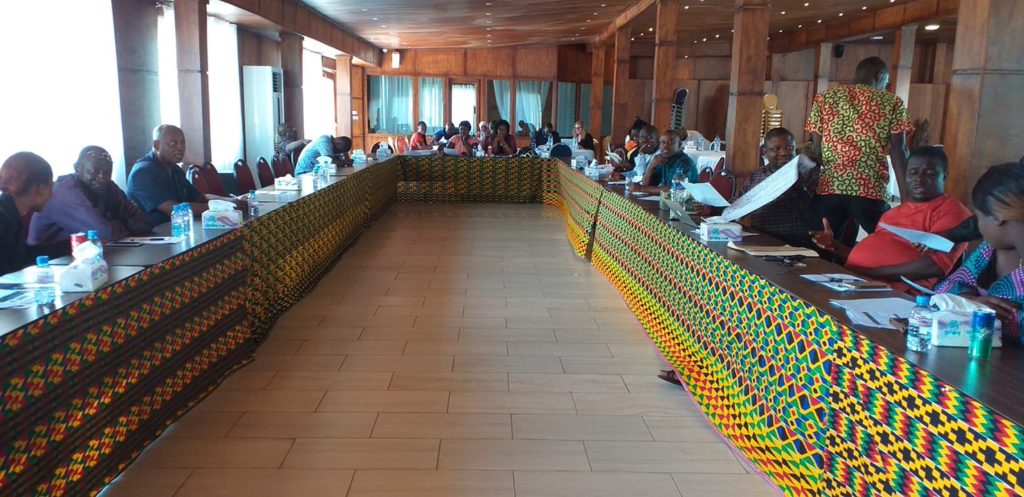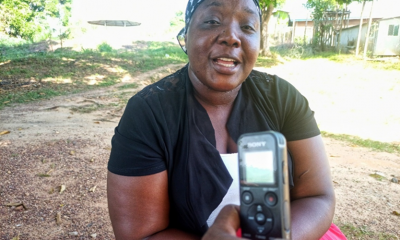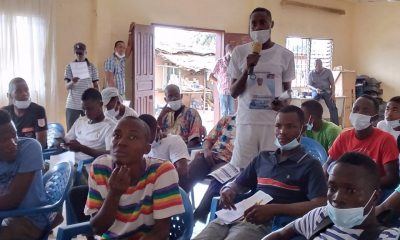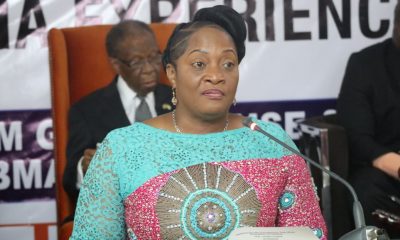

Monrovia – The Liberian legislature has held consultations with political parties on the process of electoral reform.
At least 20 political parties participated in the exercises, which took place in Monrovia from May 28 -30.
The Chairman of the House of Representatives Committee on Elections and Inauguration, Grand Gedeh County Representative Alex Grant said the three-day activities were part of efforts to solicit the inputs of various stakeholders to improve Liberia’s electoral system.
“We are embarking on an enterprise to garner the views and aspirations of all stakeholders, including political parties on where we should go with our electoral process,” Grant announced at the opening of the conference, which was held at a local hotel in Monrovia.
The consultations were being held with support from the USAID Liberia Accountability and Voice Initiative (LAVI).
Grant added that the meeting with the political parties was an offshoot of consultations on electoral reform held early this year in Buchannan, Grand Bassa County.

The Grand Gedeh County lawmaker mentioned that prominent among of the issues coming out the discussions was the need to change the election date from the rainy season to dry season.
“Our people are suggesting that we reconsider the date of the national elections from the rainy season to the dry season,” said Grant.
Representative Grant further mentioned that “Some of the people feel that holding the elections during the rainy season adversely impact on the voter’s turnout as many of the voting areas become hard to reach when the rains fall heavily.”
Also speaking, a member of the House of Representative Committee on Elections Rivergee County Representative Francis Dopoh said the interactions with the political parties is very critical to consolidating Liberia’s democracy.
“The political parties are key players in the electoral process that is why we are seeking their views on the issue of electoral reform,” Representative Dopoh noted.
Representative Dopoh stressed that they are convinced that holding these consultations are critical to enhancing Liberia’s democratic credential with the country having held three general and presidential elections which were considered largely free, fair and transparent.
“Our efforts now are to make election machinery even better. Our efforts are also to refine the electoral process for every qualified Liberian to participate in it no matter the tribal, religious or social status” the Rivergee Lawmaker declared.
He added “Our efforts are skewed towards making the electoral process simple and voter’s friendly”
The participating political parties welcomed the consultations as positive engagements for an inclusive and participatory electoral process in Liberia.
“We can only thank you and your partners for these interactions and look forward to more of such frank and opened discussions on our electoral process,” Reginald Goodridge of the True Whig Party said.
“We remain hopeful that these engagements will help boost the democratic space and propel a credible process of electoral reform in our country” added Goodridge.
The National Legislature is expected to embark on regional consultations reaching out to areas including the South Eastern, Central, Northern and Western regions of Liberia to further seek suggestions ways to improve the country’s election law.


Methodology

True
The claim is rigorous and the content is demonstrably true.

Half True
The statement is correct, although it needs clarification additional information or context.

Unproven
Evidence publicly available neither proves nor disproves the claim. More research is needed.

Misleading
The statement contains correct data, but ignores very important elements or is mixed with incorrect data giving a different, inaccurate or false impression.

False
The claim is inaccurate according to the best evidence publicly available at this time.

Retraction
Upon further investigation of the claim, a different conclusion was determined leading to the removal of the initial determination.

Toxic
A rude, disrespectful, or unreasonable comment that is somewhat likely to make you leave a discussion or give up on sharing your perspective. Based on algorithmic detection of issues around toxicity, obscenity, threats, insults, and hate speech;
































































































































































































































































































































































































































































































































































































